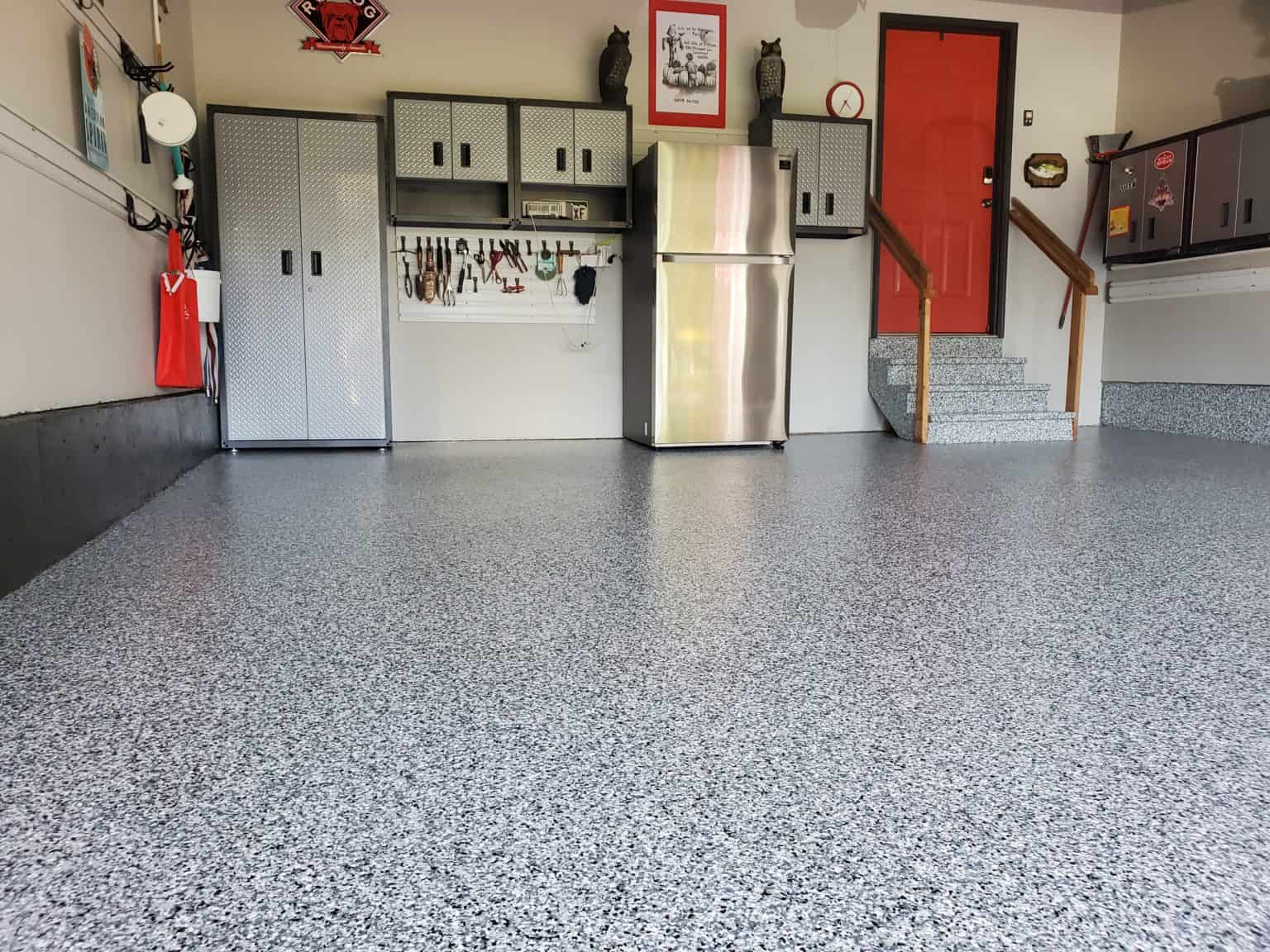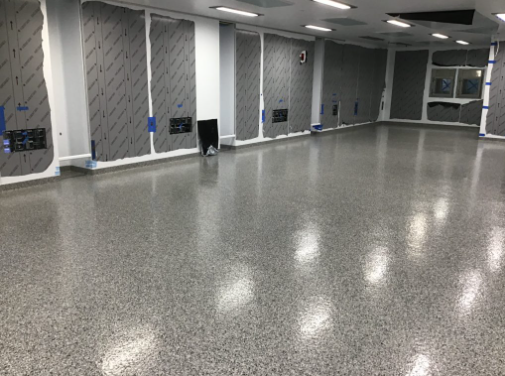Have you ever walked into a garage or workshop and felt a sense of awe at the sleek, durable, and vibrant floors? Chances are, you were admiring the magic of epoxy flooring. But before you dive headfirst into this transformative project, let’s talk about the elephant in the room – the cost. Determining the epoxy floor coating cost per square foot is crucial for budgeting and making informed decisions. This comprehensive article will guide you through the variables that influence pricing, helping you understand what factors can make your dream floors a reality.

Image: amazinggaragefloors.net
Epoxy flooring is more than just a pretty face; it’s a practical and versatile solution that can elevate any space. Whether you’re a homeowner looking to enhance your garage or a business owner aiming to create a professional and hygienic workspace, epoxy flooring holds immense appeal. This type of flooring offers unmatched durability, ease of maintenance, and a wide range of decorative options, making it a popular choice for a variety of applications. But with its many advantages comes a range of pricing considerations, which we’ll explore in detail.
Unpacking the Cost: Epoxy Floor Coating Per Square Foot
The cost of epoxy floor coating per square foot can vary significantly depending on several key factors:
1. The Type of Epoxy:
- Standard Epoxy: This is the most basic and cost-effective option, typically used for garage floors and light-duty applications. It offers excellent durability and moisture resistance but lacks the decorative appeal of higher-end systems.
- Epoxy Flake Systems: These systems add a layer of decorative flakes to the epoxy, resulting in a unique and textured finish. They enhance durability and camouflage imperfections in the concrete substrate.
- Epoxy Quartz Systems: Combining epoxy with quartz aggregates creates a visually stunning and highly durable surface. The quartz adds depth and dimension, and the system is resistant to abrasion, chemicals, and heavy impact.
- Metallic Epoxy Floors: If you’re looking for a truly breathtaking floor, metallic epoxy systems are the way to go. They create a shimmering, iridescent effect that resembles liquid metal, making a bold statement in any space.
2. The Square Footage:
The larger the area you need to coat, the lower the price per square foot will generally be. Economies of scale come into play, as the labor and material costs spread across a larger surface area. Just like buying in bulk, a bigger project often translates to a better price.
3. The Existing Floor Condition:
- New Concrete: A fresh, clean concrete surface requires less preparation, which translates to lower labor costs and a more affordable price per square foot.
- Existing Concrete: If you’re working with an older concrete floor, you might need more preparation, including patching cracks, removing existing coatings, and grinding the surface to create a smooth and even base. These additional steps can increase labor time and affect the overall cost.
4. Preparation and Installation Costs:
- Preparation: This involves cleaning, patching cracks, and grinding the floor to ensure a smooth and durable surface. The extent of required preparation depends on the condition of your existing floor.
- Installation: This includes applying the epoxy primer, base coat, and top coat, as well as adding any decorative elements like flakes or quartz.
5. The Location:
- Urban vs. Rural: Labor costs tend to be higher in urban areas due to factors like higher competition and cost of living.
- Climate: Some climates might make installation more challenging, impacting the final price per square foot.
6. Additional Features:
- Color: While standard epoxy colors are usually included in the base price, custom colors or special effects may incur additional charges.
- Additives: Specific additives may be introduced for UV stability, anti-slip properties, or chemical resistance, which can contribute to the overall cost.
7. The Contractor’s Experience and Reputation:
- Highly Experienced Installers: These professionals may charge a premium for their expertise and guarantee a high-quality finish.
- Local Contractor: Choosing a local contractor can often result in a more competitive price compared to out-of-town companies. It’s important to research and compare bids from multiple reputable contractors.
8. Material Quality:
- Premium Epoxy: Premium epoxy products may contain higher-quality resins and pigments that deliver superior performance, durability, and aesthetics, but they come with a higher price tag.
9. Maintenance Costs over Time:
While epoxy floors are known for their low maintenance requirements, consider these factors:
- Cleaning: Routine cleaning should be simple and straightforward, usually involving sweeping, mopping, or using a pressure washer.
- Repairs: Epoxy can be durable, but occasional repairs may be necessary for minor scratches or damage. These repairs are typically straightforward and can be done by DIY enthusiasts.

Image: kaptenmods.com
Epoxy Floor Coating Cost Per Square Foot
Making Informed Decisions: The Key to Your Dream Floors
Now that you understand the key components of epoxy floor coating cost per square foot, let’s move on to some practical tips for making smart choices:
- Obtain Quotes from Multiple Contractors: Don’t settle for just one quote. Get bids from multiple reputable contractors to compare pricing and services.
- Understand the Scope of Work: Clearly define the project scope, including the area to be coated, any necessary preparation, and the desired features and finishes.
- Ask About Warranties: Inquire about warranty coverage to protect your investment in the event of future issues.
- Explore Financing Options: If you need to spread out the cost, look into financing options that can make your epoxy floors a reality.
Remember: Epoxy flooring can transform your space. You’ve been given the knowledge you need to approach your new flooring project with confidence and excitement.






